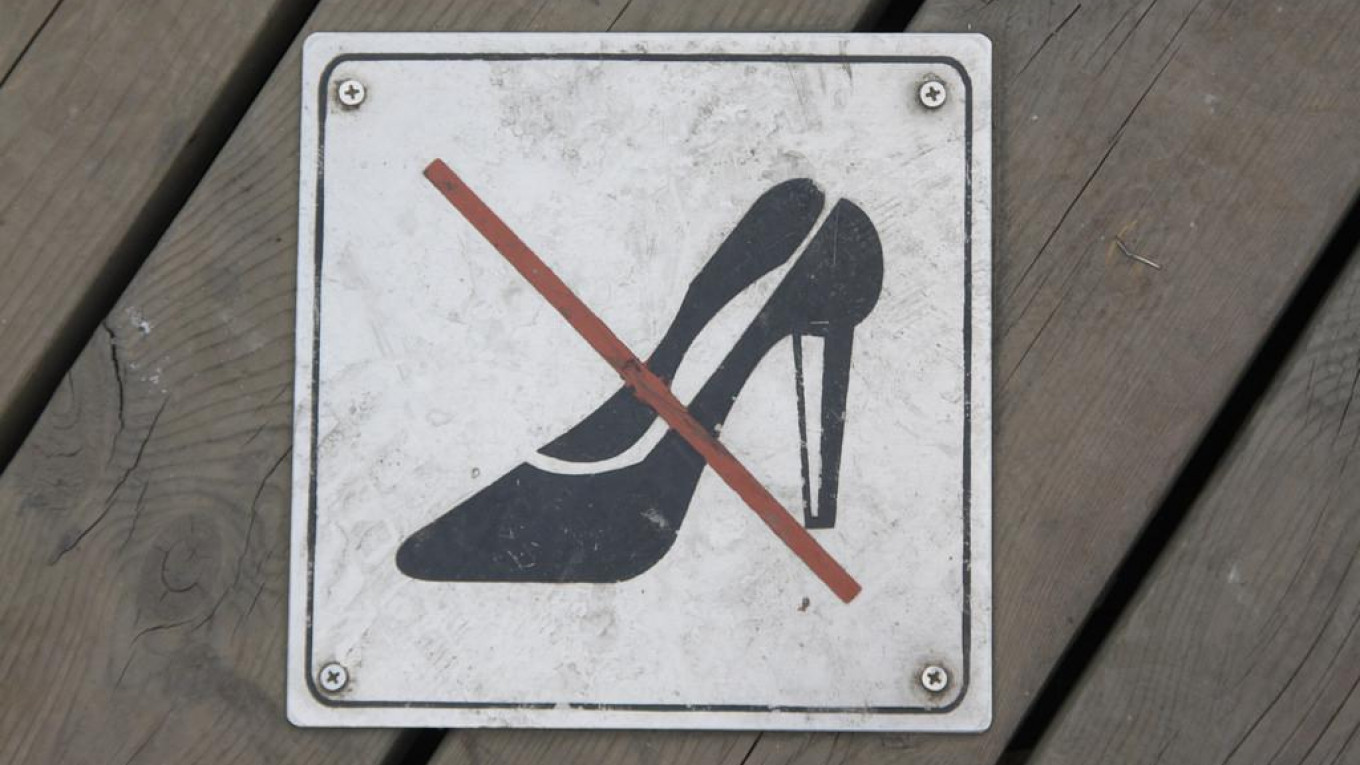Мизогиния: misogyny
Ever since November 9 at about 3 a.m. New York time, I have been talking a lot about hate crimes — that is, when I’m not sputtering and muttering and using very impolite words that are not appropriate for a family newspaper. It’s hard enough to talk about some varieties of discrimination and hate crimes in English without setting off a verbal war, but it becomes particularly fraught when trying to have the same conversation in Russian. Equivalent words don’t always have equivalent meanings or connotations. One person’s chauvinism is another person’s Как ты смеешь! (How dare you?!).
Take misogyny, one of those words that English-speakers use a lot, sometimes to mean hatred of women, more often to mean prejudice against women. In Russian, it’s мизогиния, but the word is so rare that the spell checker doesn’t know it and most people have no idea what you’re talking about. This is definitely a downer when you’re on a roll in your post-election rant. I mean, Чаво чаво (huh?) is not the response you’re looking for.
I found only a few examples of usage, like the rather high-toned: Его мизогиния ― только часть его мизантропии (His misogyny is just part of his misanthropy.)
The word more commonly used to describe people who hate or disdain women is the spectacular eight-syllable женоненавистничество, which despite its length and impossible pronunciation — if you want to give it a go, the stress is on the fifth syllable — is just a big compound word that includes ненавист(ь) (hatred) and жен (of women). If you find it a mouthful, you can use the noun женоненавистник (woman-hater), which is slightly less intimidating.
But both words are stronger that misogyny and misogynist. They don’t mean the guy at work who thinks women should get paid less because they have a hubby to take care of them; they mean the guy at work who gets the heebie-jeebies being in the same room with women. Георгий, женоненавистник и убежденный холостяк, хотел уничтожить всех женщин в мире (Georgy was a confirmed bachelor who really hated women and wanted to destroy all the women in the world.)
Here’s the problem with these slight and not-so-slight shades of intensity and meaning: In English you can say, “One of the reasons Clinton lost is widespread misogyny,” and while people might disagree, no one thinks you’re crazy.
But if you say that in Russian as Клинтон проиграла отчасти из-за распространённой мизогинии (literally Clinton lost in part because of widespread misogyny), your friends will say: Вот! Я знала, что она смертельно больна (See! I knew she had a fatal disease).
And if you say Клинтон проиграла отчасти из-за распространённого женоненавистничества (literally, Clinton lost in part due to widespread hatred of women), your friends will say, Ты чё – спятила, что ли? (Are you out of your friggin’ mind?)
When all fails in translation, try конкретизация (concretization), that is, talk about a particular part of misogyny. Клинтон проиграла отчасти потому, что многие не готовы принять женщину президента (Clinton lost in part because many people aren’t ready to accept a woman president.) So far that has gotten nods of understanding, even if my Russian friends don’t agree.
Other options are сексизм (sexism), which is a word and concept stuck in the bra-burning era, or мужской шовинизм (male chauvinism), which sounds like the punchline to a joke.
We need more words, please. It’s going to be a long four years.
Michele A. Berdy is a Moscow-based translator and interpreter, author of “The Russian Word’s Worth,” a collection of her columns.
A Message from The Moscow Times:
Dear readers,
We are facing unprecedented challenges. Russia's Prosecutor General's Office has designated The Moscow Times as an "undesirable" organization, criminalizing our work and putting our staff at risk of prosecution. This follows our earlier unjust labeling as a "foreign agent."
These actions are direct attempts to silence independent journalism in Russia. The authorities claim our work "discredits the decisions of the Russian leadership." We see things differently: we strive to provide accurate, unbiased reporting on Russia.
We, the journalists of The Moscow Times, refuse to be silenced. But to continue our work, we need your help.
Your support, no matter how small, makes a world of difference. If you can, please support us monthly starting from just $2. It's quick to set up, and every contribution makes a significant impact.
By supporting The Moscow Times, you're defending open, independent journalism in the face of repression. Thank you for standing with us.
Remind me later.








